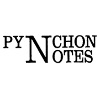Abstract
In the last several decades much discussion in the humanities and social sciences has focused on an array of purportedly new identities and political positions: postfeminist, post-Marxist, postcolonial and, of course, postmodern. This trend indicates substantial unease about historical periodization, a difficulty marking social or cultural tendencies. The "post" is an oddly retro-futurist conception that hinges on a central contradiction: on the one hand, an unwillingness to specify change in decisive, positive terms; on the other, an urgent declaration of radical transformation–the end of an era, the arrival of a brave new world. Our society is fundamentally different, says the post, but we can speak of it only in the terminology of the past. This form of self-description seems appropriate to an era marked by skepticism about ontological grounds. Yet it does not simply articulate anxiety about groundlessness; it also offers a form of psychic compensation; it offers a dramatic periodizing gesture itself as a new ground. In an age marked by the loss of the grand gesture, what could be more attractive than a grand gesture?
How to Cite:
Melley, T., (2002) “The Sublime Object of Postmodernity”, Pynchon Notes , 122-130. doi: https://doi.org/10.16995/pn.76
Downloads:
Download PDF

